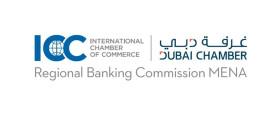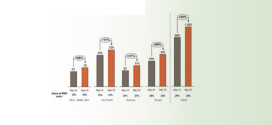A number of trade finance programmes backed by the Japanese government are currently being held in the MENA region. This follows on from an initiative by IFC, a member of the World Bank Group, which earlier this year held its first training seminar for Iraqi bankers, aimed at helping them improve their knowledge of trade finance operations so Iraqi’s banks could be better able to join international trade networks and promote the country’s economic development.
The event was held in Beirut and promoted tools for managing risks associated with trade finance products and services. It included sessions on documentary credit, trade finance rules, guarantee instruments, trade-financerelated treasury mechanisms and applying IFC guarantees to trade finance transactions.
The Japanese government has supported IFC’s trade finance initiatives, contributing nearly $2m for training programmes for financial institutions in Asia, the Middle East, and Africa. To date, Japan has supported 12 trade finance training programmes in Asia and Africa, training 472 bankers from 66 institutions.
Toru Shikibu, Japanese executive director at the World Bank, said, “We were pleased to support the Iraqi banking sector in cooperation with IFC’s Global Trade Finance Programme. This training will help Iraqi banks become part of a global trade network and build new relationship between Iraq and other countries, including Japan.”
Currently, the Japanese government is supporting several trade finance training programmes in Asia and Africa, including Bangladesh and Mali.
Launched in 2005, the IFC Global Trade Finance Programme supports trade with emerging markets worldwide, seeking to increase developing countries’ share of trade and promote cross-border flows of goods and services. The programme has provided more than $6.5bn worth of guarantees to 177 issuing banks in 80 countries, and has held 77 training courses reaching 1,775 bankers in more than 30 countries.
IFC is also partnering the Egyptian government to raise awareness about the benefits of establishing private sector zones in the country. These, it’s hoped, will increase the supply of usable land, create jobs, and boost economic activity.
Jesper Kjaer, IFC senior manager for the MENA region, said, “IFC is working with the Egyptian government to address the supply of critically needed developed land with basic services, including power, water, transport and internet links for individual investors. This will also help Egypt create more than 100,000 additional jobs in the next three years.”
Egypt estimates that private sector investment in these zones could reach $13bn in the next four years, with the private sector managing most of them.
 Cash And Trade Magazine For Cash and Trade professionals in the Middle East
Cash And Trade Magazine For Cash and Trade professionals in the Middle East




